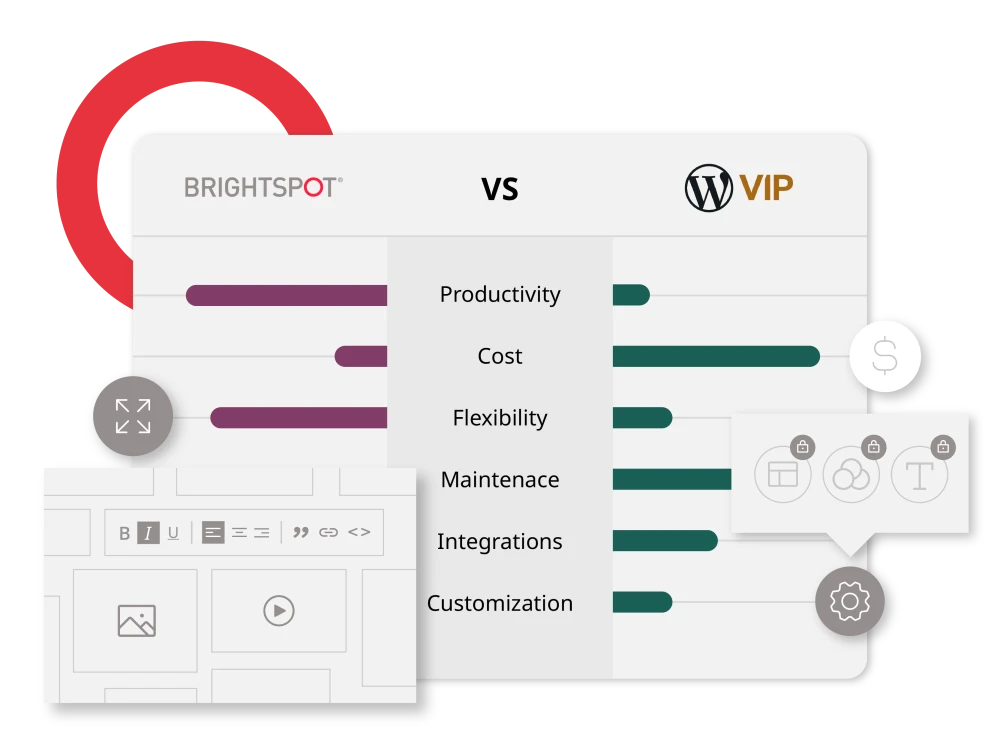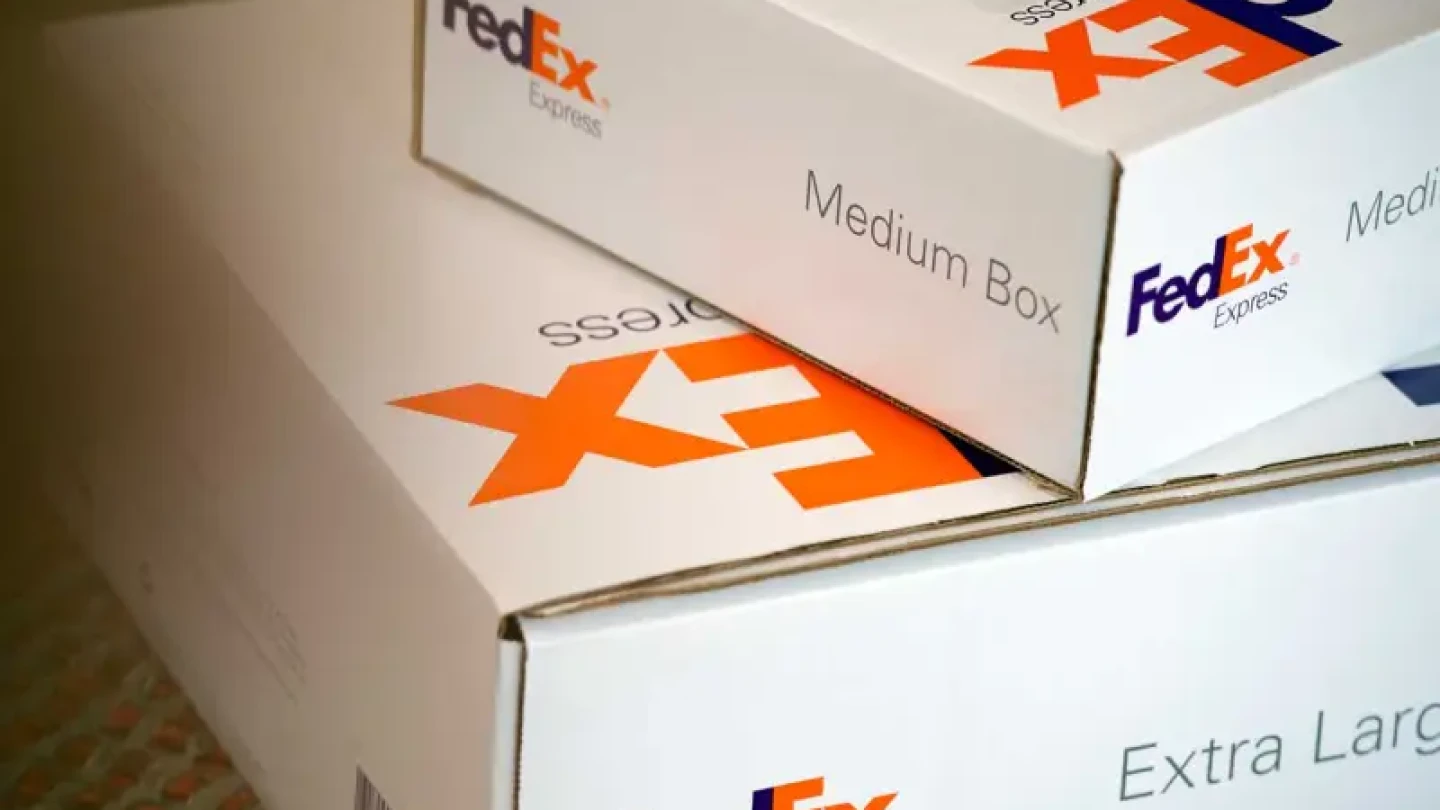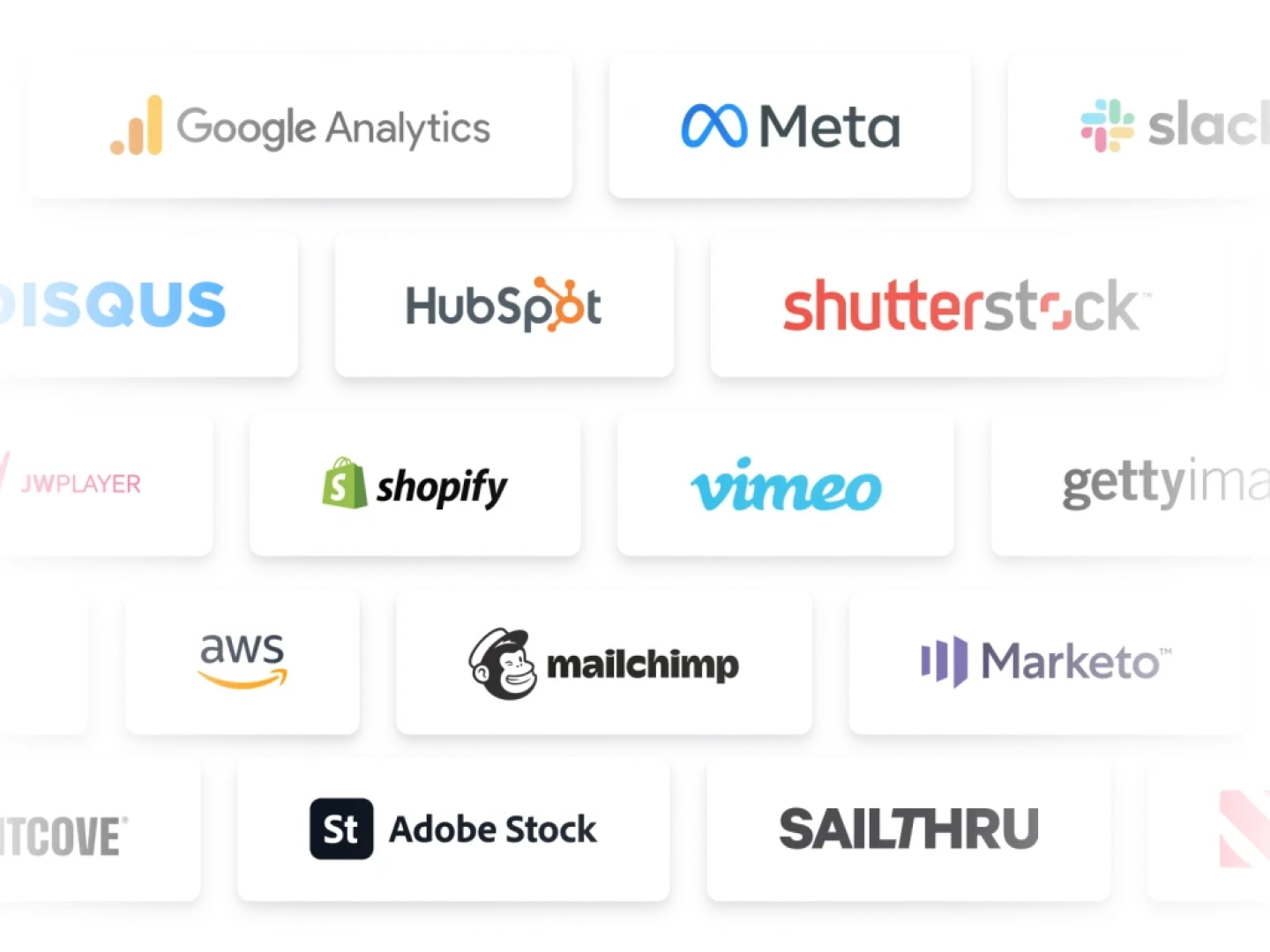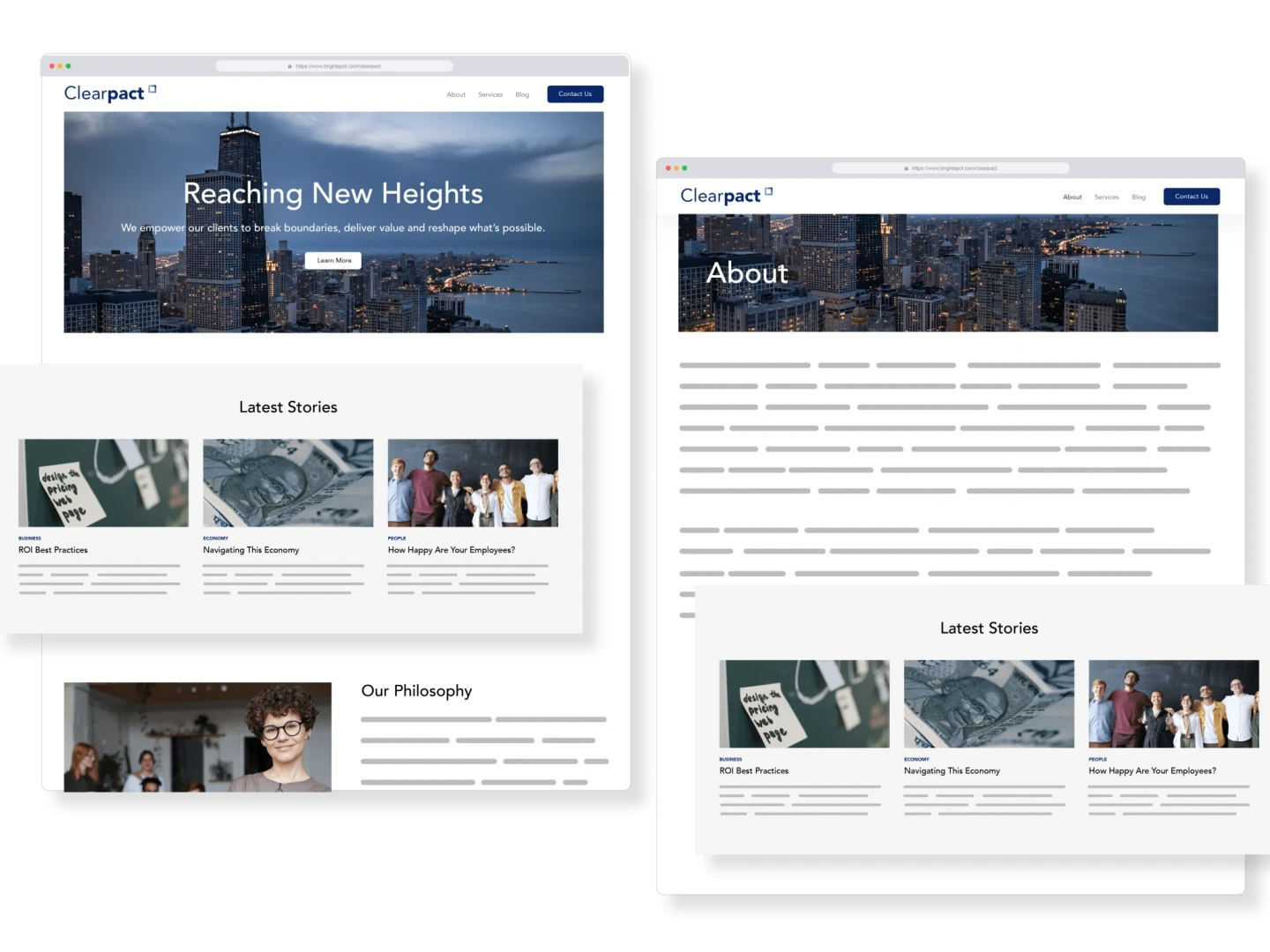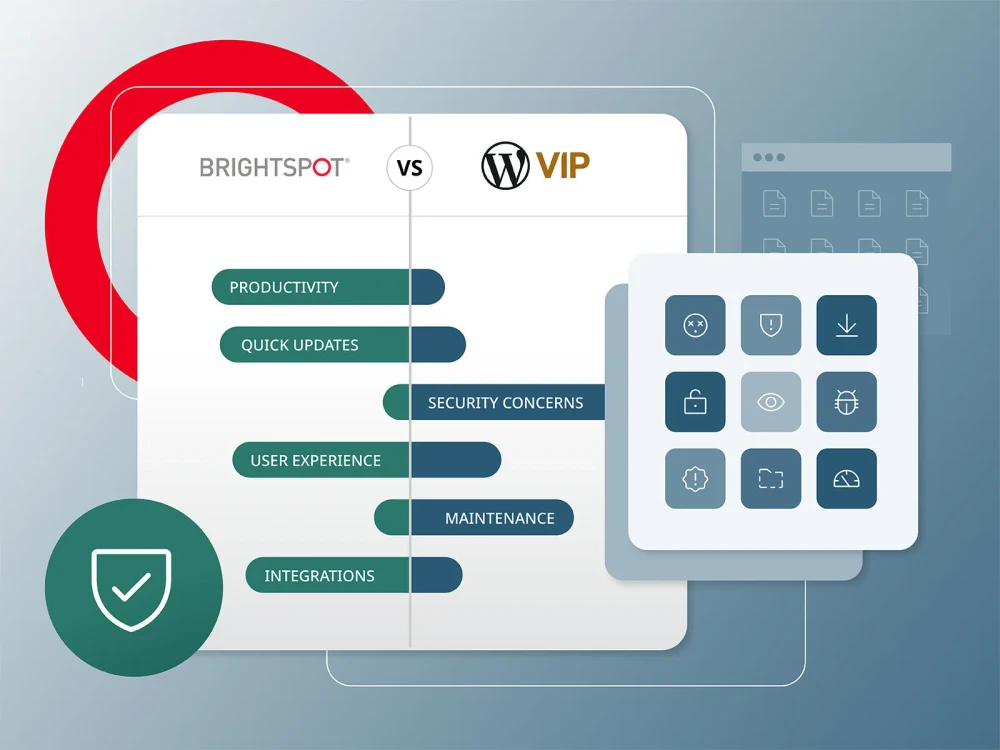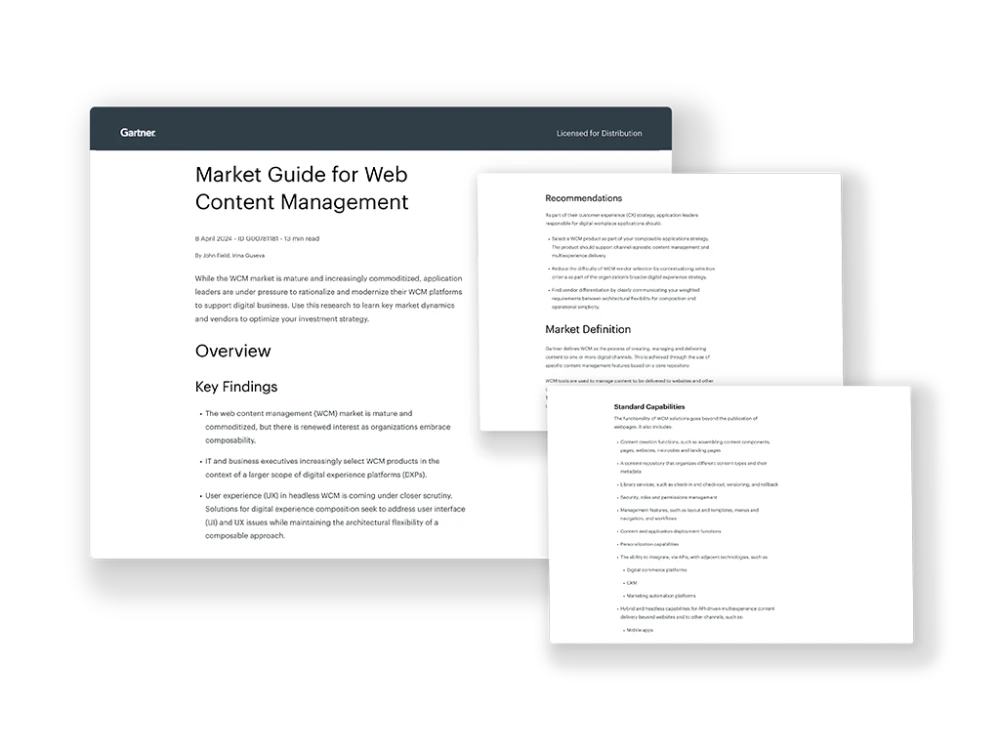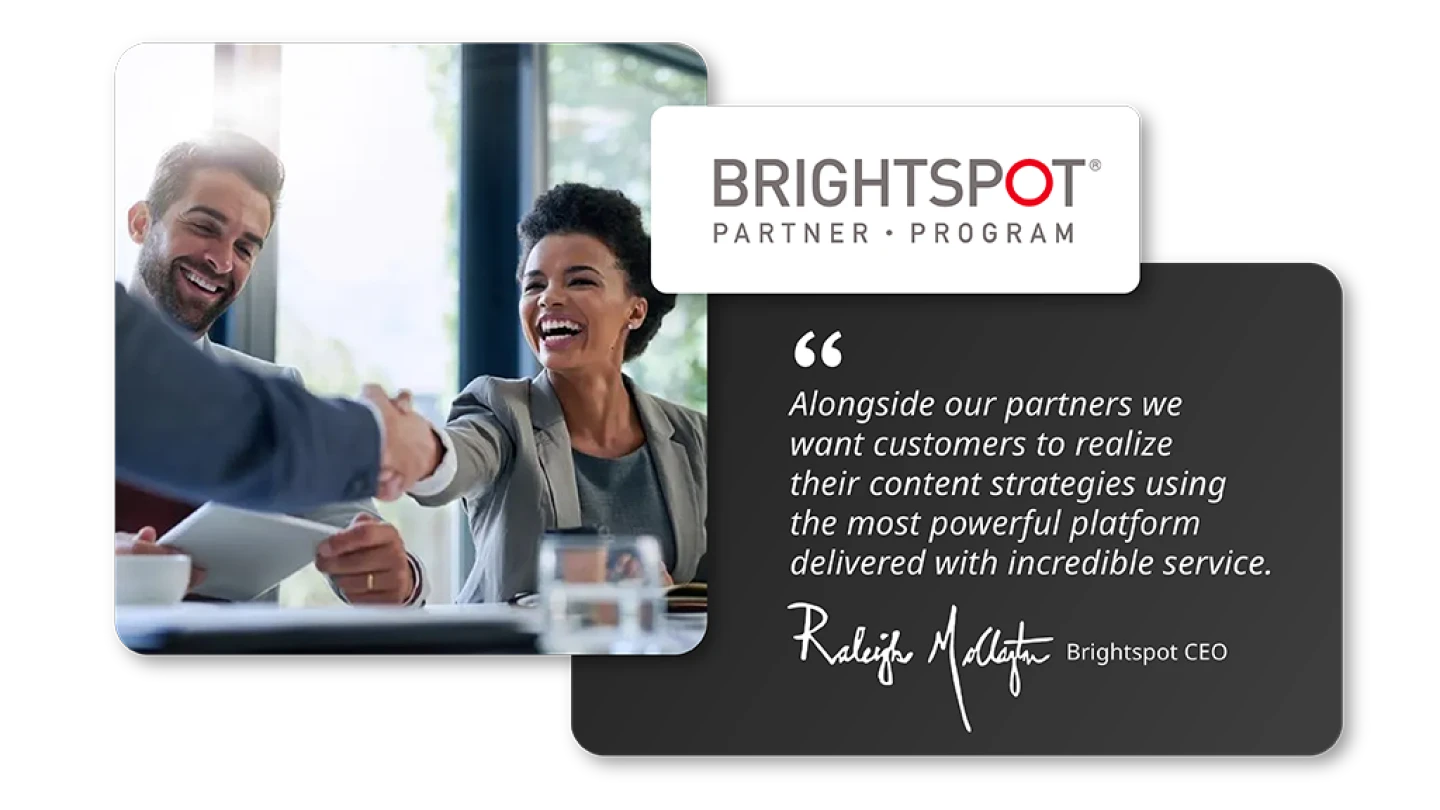Brightspot vs. WordPress VIP
Discover why leading global brands are choosing Brightspot over WordPress VIP. Benefit from extensible architecture, easy customization, advanced publishing capabilities, managed services and cost-effectiveness. Say goodbye to developer reliance, security concerns and hidden expenses with WordPress.
Flexible, fast, all-in-one CMS
Say goodbye to limitations and hello to endless possibilities with Brightspot—the content management system that empowers global enterprises to deliver content at scale.
Before Brightspot CMS
- Extensive developer or agency support to create and edit content
- Personalization, segmentation and localization capabilities are limited
- Third-party work for any customization
- Concerns for security, reliability and trusted information
- Limited dedicated support for unique needs
Building with Brightspot
- Seamless content creation with 100+ pre-built content types & templates
- Drag-and-drop modules with personalization and localization features
- Customize dashboards, workflows, content types and user interface
- World-class security with features to support you 24/7
- Committed team to walk with you every step of the way
Real outcomes for previous WordPress customers
40%
SEO traffic growth following migration off WordPress site to Brightspot
DispatchHealth
30
days to migrate Euromoney.com from WordPress to Brightspot
Euromoney
8
Wordpress sites migrated to single multisite CMS instance
Editorial Televisa
Learn how Brightspot’s out-of-the-box CMS publishing tools transformed FedEx’s ability to communicate with audiences around the world via its redesigned newsroom.
-

I’ve done site migrations several times over the years, and the thing that you always worry about — whether you’re a large enterprise or a small publisher — is that you’ve put in a lot of previous work to create an SEO footprint. I didn’t want to mess anything up on the SEO footprint side, and with the Brightspot replatforming what we saw was not only no loss, but a very welcome 40% improvement.
Chief Growth Officer, DispatchHealth
Why choose Brightspot as your alternative to WordPress?
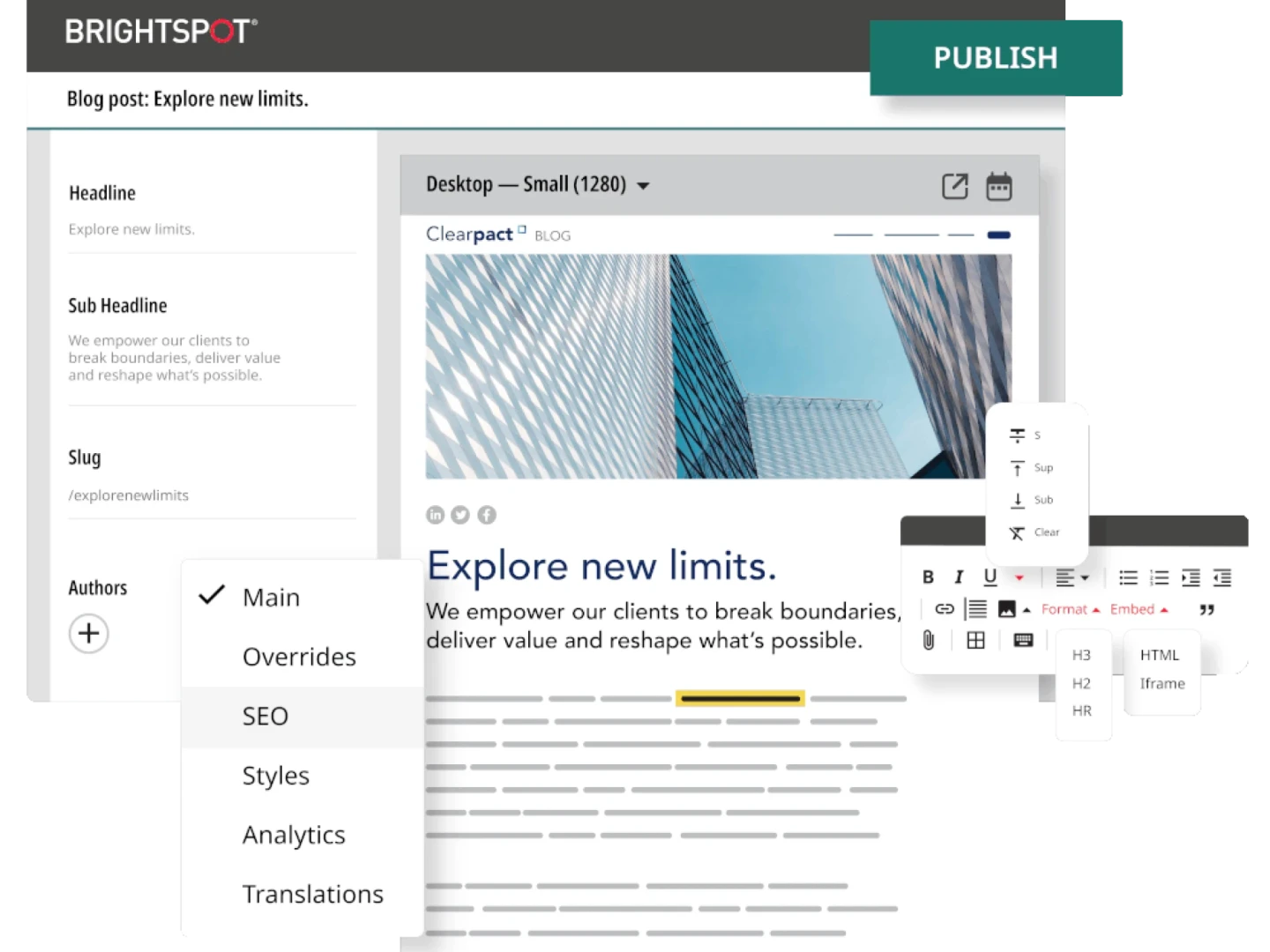
Create content fast, without compromise
Ready-to-use templates and content types make it a breeze to create the content you want without having to code anything across all of your sites.
- Create once, launch anywhere with drag-and-drop modular content features that make it easy to update and personalize at scale
- Customizable workflows and collaboration tools enable teams to work faster and easier from one content hub
- Built-in analytics, SEO tools and 50+ plug-and-play integrations ensure you have everything you need in your CMS, without third-party reliance
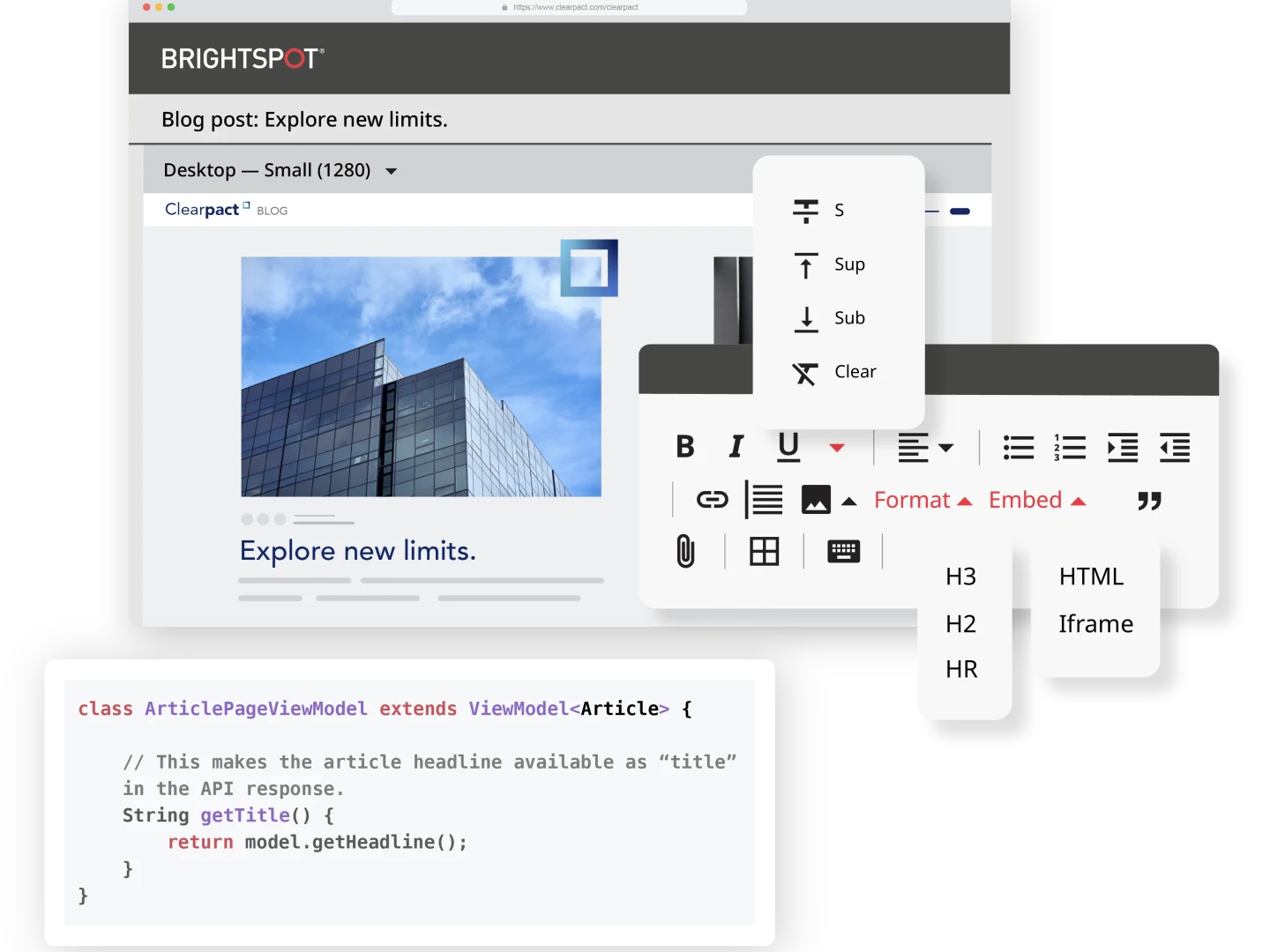
Flexibility that scales with your business
Say goodbye to scrolling WordPress user forums. With Brightspot, you can trust the top experts in the industry to walk beside you every step of the way and evolve with you as your business grows.
- Deliver content to any device and channel
- Go headless, decoupled or hybrid with the most flexible architecture
- Get a frictionless experience with auto-generated APIs and debugging
- Seamlessly connect your tech stack
Brightspot vs. WordPress: More news & resources
A look at why enterprises are rethinking WordPress as their CMS of choice after its clash with hosting provider WP Engine.
Brightspot is proud to be recognized as a Representative Vendor in the 2024 Gartner® Market Guide for Web Content Management.
Gartner Peer Insights
Hear what our users are saying.
★★★★★
Very polished and well-maintained platform that is also very customizable and supports an enterprise scale. The leadership, product and engineering teams understand how to extract business objectives, provide recommendations and execute a project plan extremely well.
★★★★★
The turnaround time to spin up products is quick and it integrates well with our existing systems seamlessly. We were able to expedite some projects on a very tight timeline because of Brightspot.
★★★★★
Great tech and took on an enormously complex challenge with us. The performance of the resulting website was exceptional!
Get more than a CMS
Say goodbye to the pain of migration, maintenance, hosting and innovation on your own. Our in-house teams and mighty partner ecosystem will help you bid farewell to those worries, get you live quickly and support you as your business scales.
Your license includes access to our managed services team that handles updates, upgrades, security patches, storage, bandwidth and more — so you don’t have to.

Creative services
Our design team works with you to create fully customized and engaging multiplatform experiences to meet unique business challenges, along with comprehensive content strategy audits, analysis and recommendations.
Our implementation approach is tailored to exactly what you need. Whether you need our full support or have an in-house development team to involve, our white-glove service team ensures a smooth delivery.
If you prefer working with a partner, we can easily do that. To get the best outcome we can for you, we have prioritized building relationships with top-tier technology partners who hold the same commitment to excellence as we do.
Our collaborative spirit spans a wide network of solution providers and agency partners. With Brightspot CMS as the foundation, we strive to deliver specialized expertise and services tailored to our valued customers’ unique needs.
See why the world’s leading brands trust Brightspot CMS
Ready to see how Brightspot compares to WordPress VIP? Connect with one of our CMS experts today to learn more about the real-world differences between Brightspot and WordPress VIP.

